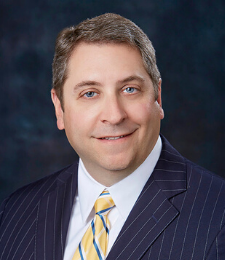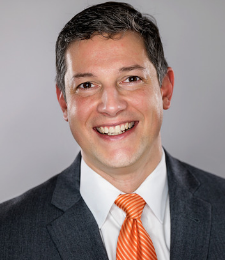I’m thrilled to announce that Bedard Law Group is the new sponsor for the Compliance Digest. Bedard Law Group, P.C. – Compliance Support – Defense Litigation – Nationwide Complaint Management – Turnkey Speech Analytics. And Our New BLG360 Program – Your Low Monthly Retainer Compliance Solution. Visit www.bedardlawgroup.com, email John H. Bedard, Jr., or call (678) 253-1871.

Every week, AccountsRecovery.net brings you the most important news in the industry. But, with compliance-related articles, context is king. That’s why the brightest and most knowledgable compliance experts are sought to offer their perspectives and insights into the most important news of the day. Read on to hear what the experts have to say this week.
Judge Denies Defendant’s MSJ in FDCPA Case Over Lack of License
A District Court judge in Hawaii has denied a defendant’s motion for summary judgment after it was sued for violating the Fair Debt Collection Practices Act because it sued to collect on an unpaid debt yet was not registered in the state as a collection agency. More details here.

WHAT THIS MEANS, FROM LAUREN BURNETTE OF MESSER STRICKLER: For industry members who have any type of contact with states and other localities with any type of licensure, registration or bonding requirement, this case underscores the importance of diving as deeply as possible before deciding to forego registration. At first blush, this issue looks straightforward — DNF believed, based on its communications with DCCA, that no registration was necessary because it did not itself “participate in the collection of the debt,” and the court disagreed. But the underlying basis for the court’s ultimately holding goes beyond the question of whether passive debt buyers should register with DCCA in Hawaii, and touches on the much deeper issue of the attorney-client relationship. On the one hand, DCCA’s email appeared to suggest no registration was required if DNF did not participate in debt collection activities, such as by outsourcing the debt to a collection agency. But the court, relying on traditional agency principles, emphasized the difference between an agency on the one hand and a law firm on the other — lawyers act “on behalf of the client, representing the client, with consequences that bind the client.” As such, the court strongly suggests — without explicitly stating — that while a debt buyer who outsources to an agency may under some circumstances be truly “passive,” they are no longer passive when they engage counsel and commence litigation because of the “basic principal-agency principles between a lawyer and a client,” which ultimately render the client responsible for the conduct of its counsel. Creditors, agencies and law firms alike should use this opinion as an opportunity to look closer at such subtle differences between traditional agencies and law firms, and the differing issues those relationships create.
THE COMPLIANCE DIGEST IS SPONSORED BY:

Ratification Not Enough to Protect CFPB’s Actions, Amicus Briefs Argue
A pair of organizations have filed amicus briefs in support of a company being sued by the Consumer Financial Protection Bureau, arguing that a ratification by the regulator is not enough to allow the case to continue. More details here.

WHAT THIS MEANS, FROM DAVID SCHULTZ OF HINSHAW CULBERTSON: The constitutionality of the CFPB has been the subject of debate and litigation since its inception. We know the Supreme Court in Seila Law held unconstitutional CFPB’s structure, severing the director’s for-cause removal protection but leaving the agency and authority otherwise intact. As a consequence of that ruling, the 5th Circuit en banc panel is considering another constitutional challenge to the agency in CFPB v All American Check Cashing.
Due to Seila Law, the agency’s current Director has been submitting ratifications that declare any regulatory actions taken prior to the Supreme Court’s ruling remain valid. Is that lawful? That is being litigated in CFPB v All American Check Cashing. This past week the Cato Institute and Pacific Legal Foundation filed amicus curiae briefs in support of the defendant. Cato Institute argues that the “attempt at retroactive constitutional justification is dangerous. An illegitimate exercise of power cannot become legitimate through post-hoc ratification. Allowing such an action would perpetuate the constitutional violation and undermine the separation of powers.”
The case presents difficult constitutional issues that may either end up again in the Supreme Court or have a ripple effect on CFPB actions taken pursuant to a ratification.
Judge Grants Motion for Defense in FDCPA Case Over Name of Current Creditor in Letter
A District Court judge in New York has agreed to adopt a Magistrate Judge’s recommendation that a defendant’s motion for judgment on the pleadings be granted after it was sued for violating the Fair Debt Collection Practices Act because it allegedly did not properly identify the creditor to whom a debt was owed in a collection letter. More details here.

WHAT THIS MEANS, FROM BRIT SUTTELL OF BARRON & NEWBURGER: This is case is another example in a recent slew of cases being brought regarding the proper identification of the creditor. Section 1692g(a)(2) requires that initial validation notice indicate the “creditor to whom the debt is owed.” In this case, it was simple because the debt was owed to Chase and the letter only referenced Chase; the court correctly held that the least sophisticated consumer would understand that he owed a debt to Chase. This case was decided by a District Court judge in New York but it is likely that there would have been a different outcome in a different circuit. For instance, earlier this week a decision out of the Eastern District of Wisconsin held that the debt collector did not properly identify the “creditor to whom the debt was owed.” See Volkman v. Enhanced Recovery Co., 2020 U.S. Dist. LEXIS 142472 (E.D. Wis. Aug. 10).
Additionally, when a subsequent owner of a debt or a debt buyer is the current creditor, it can become more complex because many debt collectors want to include both the “creditor to whom the debt is owed” (most commonly called the “current creditor”) and the “original creditor” in order to provide the consumer with more information and background regarding the debt. Indeed in Africano-Domingo v. Miller & Steeno, P.C., et al., 2020 U.S. Dist. LEXIS 142814 (N.D. Ill. Aug. 10), the court denied a motion to dismiss by the debt collection law firm finding that the consumer had stated a case that the law firm failed to properly identify the creditor as required by 15 U.S.C. § 1692g(a)(2). There are several lessons to be learned from these cases. First, consumer attorneys are on the prowl for these types of actions. Second, be clear and concise and just identify the information required under the FDCPA (and state law requirements, if applicable). Third, the fancier and more complex you try to make your letter, the higher the likelihood a consumer attorney may take notice.
NYC Issues FAQ to Help Comply With Language Access Rule
The New York City Department of Consumer Affairs has issued its long-awaited Frequently Asked Questions related to a new Language Access rule that went into effect in late June and will begin being enforced later this month. A copy of the rules can be accessed by clicking here. More details here.

WHAT THIS MEANS, FROM BRENT YARBOROUGH OF MAURICE WUTSCHER: The FAQs provide some helpful information, but leave other questions unanswered. The FAQs helpfully define what DCA considers to be a “language access service” and clarify which rules apply to creditors attempting to collect their own debts that are not in default. However, the rules fall short of addressing all of the questions raised by a coalition of industry trade associations. For example, the industry hoped to receive more clarity on what DCA considers to be “reasonable attempts” to obtain and record a consumer’s language preference. The FAQs explain that collectors can fulfill this requirement by recording a consumer’s non-response when the consumer declines to state a preference. Presumably, if the collector asks the consumer about her language preference during a telephone call and the consumer refuses to state a preference, then this refusal can be recorded as a non-response. However, the guidance is more difficult to apply to written communications requesting the consumer’s language preference. At what point, if ever, can a consumer’s silence in response to one or more written requests be recorded as a non-response? Unfortunately, the FAQs do not tell us.
Judge Grants MTD in FDCPA Case Over Call to Work Phone, Lack of Response to Validation Request
A District Court judge in Iowa has granted a defendant’s motion to dismiss after it was sued for violating the Fair Debt Collection Practices Act because it contacted the plaintiff at his place of employment and never received validation of the debt after he requested it from the defendant. More details here.

WHAT THIS MEANS, FROM RICK PERR OF KAUFMAN DOLOWICH VOLUCK: This case highlights two slightly known aspects of the FDCPA – calls to place of employment and the time to respond to a written request for validation. Many complaints filed by plaintiffs allege a violation of the FDCPA based on calls to the consumer at his place of business or on her “work” cell phone. However, the FDCPA only prohibits such conduct if the collection agency knows that the employer bans such calls. Agencies are permitted to telephone a consumer’s place of business to speak to the consumer until such time as it finds out that the calls are not permitted. Similarly, section 1692g does not contain a time frame to respond to a properly submitted request for validation. The agency has the choice to respond, or, if it does not respond, simply to stop pursuing collection activity. If it chooses to stop collection activity, it has no obligation to even inform the consumer of this decision. The moral of this story is that just because a consumer is annoyed by certain collection conduct, it does not necessarily rise to the level of an FDCPA violation.
Judge Grants MSJ For Defense in TCPA Case Filed By Professional Plaintiff
In a case that was first reported by Eric Troutman at TCPAWorld, a District Court judge in Nevada has granted a defendant’s motion for summary judgment in a Telephone Consumer Protection Act case in which a former debt collector purchased a prepaid cell phone for the purpose of suing companies that called him without consent. More details here.

WHAT THIS MEANS, FROM ETHAN OSTROFF OF TROUTMAN PEPPER: This is definitely a big win for the industry on lack of standing involving an attempt to manufacture a TCPA lawsuit – especially coming from a district court within the Ninth Circuit. Fortunately for this defendant, the Court was able to dismiss the suit on standing grounds, otherwise the court would have been obliged to follow N.L. v. Credit One Bank, Case No. 19-15399 (9th Cir. Jun 3, 2020), which not only reinforced the Ninth Circuit’s overly expansive definition of what constitutes ATDS, but also ruled (for the first time) that the consent of the called party is insufficient, instead the consent of the subscriber or customary user of the number must be obtained to avoid TCPA liability.
Garcia highlights the challenges and uncertainties faced by businesses when attempting to communicate with customers where there is no clear guidance on how to manage encounters with third-parties using recycled wireless phone numbers – especially given the prevalence of manufactured claims. The sheer volume of recycled numbers is staggering. In 2018 the FCC estimated that 35 million numbers are disconnected and made available for reassignment to new consumers each year, and that some 100,000 wireless numbers are reassigned by telecommunications carriers every day. Garcia involving failed attempts to reach the customer because the caller did not know the number had been reassigned to a prepaid cell phone is become more routine – which was one of many cell phones plaintiff maintained in the hopes of receiving calls intended for someone else for purpose of setting up TCPA lawsuits. While Congress enacted the TCPA with the intention of shielding consumers from the nuisance of unwanted telemarketing communications, that shield can being wielded as a sword by the very group the statute is intended to protect. Consumers are continuing to exploit the TCPA to manufacture false claims as a business enterprise. It is becoming increasingly clear that defending litigation over calls to reassigned numbers requires investigation into the timing, circumstances, and uses of every cell phone number a plaintiff maintains.
Flurry of Comments Filed on Deadline Day for Time-Barred Disclosure Rule; ACA Urges CFPB To Withdraw Proposal
A number of individuals, companies, and associations waited until the last minute to submit their comments about the Consumer Financial Protection Bureau’s proposed rule about time-barred debt disclosures. Now that the comment period on the supplemental notice of proposed rulemaking (SNPRM) has closed, the CFPB will analyze the comments and then issue a proposed rule, which will include its own comment period, to be followed by the issuance of a final rule. More details here.

WHAT THIS MEANS, FROM MICHAEL KLUTHO OF BASSFORD REMELE: “Time waits for no one.” Just like statutes of limitation — which instruct that delay can doom a cause of action – there was an understandable flurry of commenting on the CFPB’s proposed rule about time-barred debt disclosures, just as the comment period closed. Deadlines always spur action. Well, at least they usually do. What’s interesting in the context of collections, is that it seems that as a consumer debt ages, the urgency to collect seems to fade. And with that, consumer debts become tainted, if you will, at least when it comes to the ability to bring a lawsuit to enforce an out of statute debt.
Why this delay happens is anyone’s guess. But what is known, is that the caselaw interpreting the FDCPA, as well as the takeaways from several Consent Orders and state statutory enactments, all tell us that collecting time-barred debts comes with an extra set of risks. What does a consumer need to be told regarding the nature of time-barred debts? This is a ripe area of FDCPA litigation. Perhaps this will be one of those instances where the CFPB can establish a blight-line disclosure that is fair and that can be used to eliminate at least some of the risk associated with collecting older debts. We shall see.
Calif. Appeals Court Rules on FDCPA, TCPA Case Invoking Anti-SLAPP Defense
The California State Court of Appeals has partially overturned a lower court’s denial of a lawsuit claiming a collection law firm violated the Fair Debt Collection Practices Act and the Telephone Consumer Protection Act in which the defendant attempted to use an anti-SLAPP motion to have the case dismissed. More details here.

WHAT THIS MEANS, FROM XERXES MARTIN OF MALONE FROST MARTIN: The recent decision by the California State Court of Appeals reinforces that debtors must provide sufficient factual support to prevail on TCPA claims by alleging that a collector unlawfully used an automated dialing system (ATDS). The Court determined that a plaintiff’s mere “belief” that a collector used an ATDS does not satisfy the burden of proof. Notably, even though the collector (law firm)’s website stated that it utilizes several automatic dialers, the Court held that this alone was not sufficient evidence to establish that the collector used an ATDS when it placed the calls at issue. Hopefully with this decision California courts will reject debtors’ TCPA claims when complaints are couched with conclusory allegations and legal theories.
Judge Upholds $232k Award in TCPA Collection Case
A District Court judge in New York has affirmed rulings from both an arbitrator and a Magistrate Judge and awarded a plaintiff who received 466 collection calls from the defendant without providing her expressed consent $232,500 in damages. More details here.

WHAT THIS MEANS, FROM JUNE COLEMAN OF MESSER STRICKLER: The District Court’s opinion, Salerno v. Credit One Bank, NA, 2020 U.S. Dist. LEXIS 57134 (W.D.N.Y. Mar. 31), addresses some interesting issues in cases alleging claims under the Telephone Consumer Protection Act. This case involved a credit card account issued to Plaintiff, who provided her land line phone number for contact. The credit card agreement states that the creditor can contact Plaintiff at any number she provides for any lawful purpose, including but not limited to account transactions, account servicing and collection on the account. A few months after she opened the account, Plaintiff obtained a cell phone, but never provided that number to the creditor. Her boyfriend had another account. Both Plaintiff and her boyfriend were in arrears regarding their separate accounts. The creditor received a phone call from Plaintiff’s cell phone, and the caller wanted to ask questions about the boyfriend’s account. The caller had sufficient information to confirm the creditor could speak to the caller. (There is some dispute about whether Plaintiff or the boyfriend called the creditor on the Plaintiff’s cellphone.) During this call, Plaintiff’s cell phone number was captured and associated with the boyfriend’s account. Thereafter, vendors for the creditor placed 465 calls to Plaintiff’s cell phone, ostensibly via an automated telephone dialing system, regarding the boyfriend’s account. The TCPA case ultimately ended up in arbitration. After the initial arbitration decision against the creditor, the creditor chose to have a second de novo arbitration before a three arbitrator panel. At the conclusion of the second arbitration, the arbitration panel found that the creditor failed to demonstrate that the creditor had obtained Plaintiff’s prior express consent to calls made to Plaintiff’s cell phone regarding her boyfriend’s account, awarding $232,500 in statutory damages at $500 per call. Defendant creditor sought to have the District Court vacate the arbitration award, arguing that the arbitrators had manifestly disregarded the law in their ruling. Plaintiff sought to have the arbitration award affirmed and pre-judgment interest awarded from the filing date of the complaint in 2015. The Magistrate Judge issued a Report and Recommendation which was mostly accepted on July 28. The Magistrate’s Report and Recommendation provides some interesting discussion that is should be of interest to the ARM industry.
Specifically, defense counsel argued that the District Court should vacate the arbitrators’ decision based on the Second Circuit’s King v. Time Warner Cable, 894 F.3d 473 (2d Cir. 2018) decision, where the Second Circuit held that a court’s determination on whether dialing equipment fell within the TCPA’s definition of “automated telephone dialing system,” had to be based on the current capabilities of the equipment, and not on whether the equipment had other capabilities if adapted in the future. The King Court invalidated the 2015 FCC ruling which addressed this issue. Defense counsel argued that the King holding should be interpreted to invalidate earlier FCC rulings that included predictive dialers in the definition of “automated telephone dialing system” (“ATDS”) While the King decision was premised on rejecting the 2015 FCC ruling related to the capacity of ATDSs, the District Court noted that the King ruling did not address the earlier FCC rulings which also defined ATDS to include predictive dialers. The District Court’s decision in this regard adds to the variety of cases that have so held, and is juxtaposed against the variety of cases that have reached the opposite conclusion, the argument put forth by defense counsel. We continue to hope to have a definitive new FCC ruling clarifying that predictive dialers are not within the scope of the TCPA, or a judicial determination by the U.S. Supreme Court to the same effect. As a side note, the District Court noted that the high volume of calls was a relevant indicator that an ATDS was used. This conclusion that the number of calls provides inferential and circumstantial evidence that an ATDS was used is something to keep in mind when defending one of these TCPA actions.
The second part of the District Court’s decision is more interesting, in my opinion. Defense counsel argued that Plaintiff had consented to be called for any lawful purposes, relying in part on Reyes v. Lincoln Auto. Fin. Servs., 861 F.3d 51 (2d Cir. 2017). The District Court found that there were reasonable bases to support the arbitrators’ finding that the creditor had failed to prove that Plaintiff had given prior express consent to calls to her cell phone about her boyfriend’s account. The District Court found that one reasonable basis for the arbitrators’ finding was that the contract term where Plaintiff consented to calls was limited to calls related to Plaintiff’s account, not her boyfriend’s account. The District Court also noted that the cell phone number was acquired after Plaintiff agreed to the terms of the credit card agreement, providing another reason to conclude that Plaintiff did not provide express consent to calls to her cell phone number when she entered into the credit card agreement. The District Court also noted that the terms of the agreement (which included consent to calls regarding her account) were accepted unilaterally, through the use of the credit card. The arbitrators found that express consent required a bargained-for,-bilateral agreement, because a unilateral acceptance of the credit card account terms only implied consent. The District Court noted that Reyes addressed revocation of an express contract term consenting to calls in a bilateral contract– and did not support the argument that Plaintiff had consented to calls when the contract was agreed to through the use of the credit card. This aspect of the case will be troubling for credit card companies and those who collect on credit card accounts who rely on the argument that terms consenting to calls are accepted by use of a credit card.
Based on the foregoing, the Magistrate’s Report and Recommendation recommended affirming the arbitration award and awarding prejudgment interest from 30 days after the arbitrators’ award was issued at the Nevada state approved rate of 7%. (The contract contained a choice of law provision selecting Nevada as the law to apply.) That prejudgment interest would have amounted to approximately $30,000. The District Court judge accepted the recommendations of the Magistrate Judge, with one exception – declining to award prejudgment interest, finding that prejudgment interest was not warranted or appropriate when statutory damages exceed actual damages. (Salerno v. Credit One Bank, N.A., 2020 U.S. Dist. LEXIS 133636, *6 (W.D.N.Y. July 28).) This is another kernel we should keep in mind when defending TCPA cases.
N.C. Judge Follows Ninth, Second Circuit in Defining ATDS in TCPA Case
A District Court judge in North Carolina has denied a defendant’s motion to dismiss after it was accused of violating the Telephone Consumer Protection Act by using an automated telephone dialing system to contact an individual without first receiving his consent, adopting a definition of an ATDS that is in line with how the Ninth and Second Circuit Courts have defined it. More details here.

WHAT THIS MEANS, FROM KELLY KNEPPER-STEPHENS OF TRUEACCORD: Are you tired yet of hearing about the Telephone Consumer Protection Act cases and different court interpretations of Automated Telephone Dialing Systems (ATDS)? Thankfully, the Supreme Court will hear a case next year on the issue and potentially end the circuit split. In the meantime, if your system uses human intervention in certain districts it may still be an ATDS. In Hayhurst v. Keller Williams Realty, Inc., the business made several decisions that impacted that case unrelated to the type of phone system that you can learn from right now to perhaps avoid TCPA liability.
What material is on your website or the Internet about your telephone systems? The defendant, Keller Williams Realty, had a blog post on line found by the Plaintiff and quoted in the Complaint that read: “how do you crank through that many phone calls in just 90 days? Ultimately, they decided to leverage Red X MOJO Powerdialer, purchased BOOM headphones, and added more phone lines.” The Complaint also included information from the Plaintiff about the calls received, such as, no one on the phone when he first answered then he heard a beep and an agent joined, a pre-recorded message left on his voicemail, several seconds of “dead air” before connection with an agent. For courts that follow the 9th and 2nd Circuits broad definition of an ATDS, like the District Court in North Carolina, all that matters is whether the phone system “stores telephone numbers to be called and calls them, even if those numbers were not generated by a random or sequential number generator.” In other words it does not matter to these courts whether the numbers are generated by a human (manually intervening in the dialing platform), the question of whether a phone system is an ATDS focuses only on whether or not the system stores telephone numbers to be called and calls them!!
If you are not making the calls but hired a business to make calls on your behalf the control you have over that company can result in you being held liable for the violation even though you didn’t make the call. In Hayhurst, the Court looked at whether Keller can be held liable for the actions of the relators doing calling work on their behalf and found that there was enough information in the complaint for the case to go forward against Keller. Some of the facts the court relied on to establish this control included a Vendor Program, approved scripts, as well as training programs, materials and coaching. In the call center context, this reiterates the principle that the more control, direction and supervision given by a business hiring a call center to make calls, the more likely that the business can be held liable even if it did not make the phone calls.
As a practical strategy matter, Keller should not have moved to dismiss the case on the pleadings (of course it’s easy for anyone to say this in hindsight). The standard the Plaintiffs need to meet in alleging violations is not a high bar. Keller could have saved some time and money by answering, going through discovery to put facts on the record before the judge to show that the system does not functionally meet the ATDS definition (assuming it doesn’t store numbers to be called).
Appeals Court Upholds Dismissal of FDCPA Suit Over Reporting Multiple Debts Separately
The Court of Appeals for the Seventh Circuit has upheld the dismissal of a Fair Debt Collection Practices Act case in which a collection agency was accused of engaging in unfair or unconscionable means of collecting on debts because it reported those debts separately to a consumer reporting agency that the plaintiffs argued should have been aggregated into one debt. More details here.

WHAT THIS MEANS, FROM DENNIS BARTON OF THE BARTON LAW GROUP: Last year in Rhone v. Medical Business Bureau, LLC, the Seventh Circuit held that credit reporting separate medical charges rather than reporting them all as one single account is not a misrepresentation of the debt under § 1692e. The plaintiffs in Zablocki v. Merchants Credit Guide Co. asked the court to find the same conduct as a violation of § 1692f. Zablocki was filed days after the Rhone decision, so plaintiffs had to concede reporting separate medical debts was not a misrepresentation. They then focused on their only other claim, which alleged separately reporting the medical debt was unfair and unconscionable because it had a greater negative effect on their credit score than reporting a single account.
The FDCPA does not define the terms “unfair” or “unconscionable.” The Seventh Circuit adopted the Webster’s Dictionary definitions of unfair as “marked by injustice, partiality, or deception: unjust, dishonest”; and unconscionable as “not guided or controlled by conscience: unscrupulous’; ‘excessive, exorbitant; ‘lying outside the limits of what is reasonable or acceptable: shockingly unfair, harsh, or unjust: outrageous.’” The court found reporting medical debts separately was neither unfair nor unconscionable. In fact, the court recognized many consumers may like the greater specificity of what debts are being reported. The plaintiffs’ preference to have those debts reported as a single account did not equate to unfairness or an unconscionable act.
The value of this case is its definition of unfair and unconscionable, key undefined terms in § 1692f. This provides additional guidance regarding when § 1692f is violated. This opinion also rejected Plaintiffs’ argument that the defendant violated § 1692f by violating TransUnion’s reporting rules. The court stated, “§ 1692f is not ‘an enforcement mechanism’ for other rules of law, including any that turn on TransUnion’s vocabulary.” This is nice ammunition against future plaintiffs arguing violations of other laws or rules automatically equate to liability under the FDCPA.
I’m thrilled to announce that Bedard Law Group is the new sponsor for the Compliance Digest. Bedard Law Group, P.C. – Compliance Support – Defense Litigation – Nationwide Complaint Management – Turnkey Speech Analytics. And Our New BLG360 Program – Your Low Monthly Retainer Compliance Solution. Visit www.bedardlawgroup.com, email John H. Bedard, Jr., or call (678) 253-1871.









